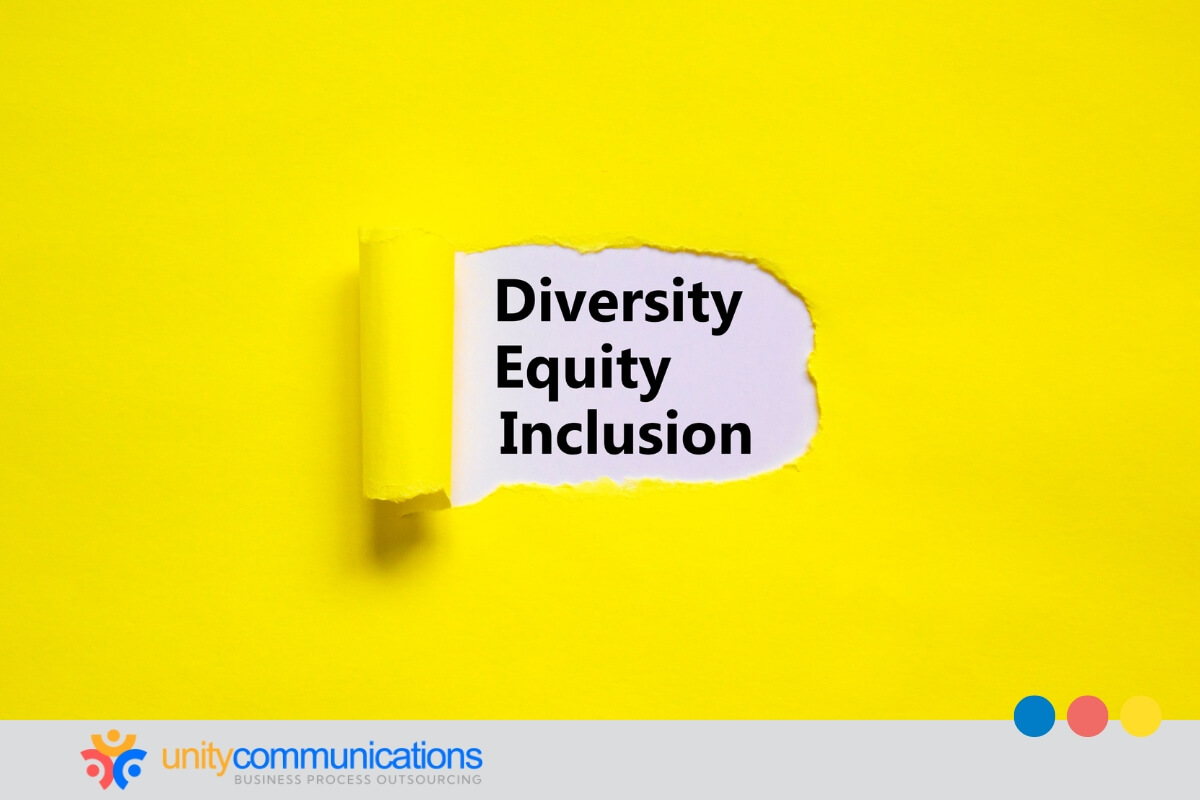IN THIS ARTICLE
Table of Contents
Corporate social responsibility (CSR) is more than a buzzword—it reflects a commitment to ethical and sustainable practices. As companies expand globally, CSR standards in outsourcing contracts shape responsible partnerships.
Concerns about fair labor, sustainability, and transparency are prominent in business process outsourcing (BPO) today. Following CSR guidelines can strengthen trust, mitigate risks, and drive long-term success.
Read below to learn how to cultivate ethical outsourcing relationships that align with your company’s values and global expectations.
Understanding CSR standards in outsourcing contracts

What is BPO, and how do CSR standards apply in outsourcing contracts? Business process outsourcing involves delegating operations to a service provider to reduce costs, improve efficiency, and focus on core competencies.
The global BPO market will reach $525.23 billion by 2030 at a compound annual growth rate (CAGR) of 9.6%. As BPO adoption expands, CSR guidelines for sustainable third-party agreements become increasingly vital to ensure fair labor practices, financial responsibility, and environmental protection.
Key aspects of sustainable practices in business process outsourcing agreements include:
- Labor practices and working conditions. Ethical service providers comply with labor laws, offer safe workplaces, and enforce fair wages. These efforts enhance the workforce’s well-being and long-term productivity.
- Environmental impact and sustainability. BPO providers should adopt energy-efficient processes, waste-reduction strategies, and carbon footprint monitoring to reduce adverse ecological effects.
- Transparency in supply chains. To uphold ethical operations, companies must work with outsourcing firms that disclose sourcing practices, manufacturing processes, and labor conditions. Transparency prevents exploitation and strengthens responsible procurement.
Companies relying on outsourced services must regularly assess ethical performance. Integrating CSR into third-party contractor selection and BPO deals strengthens reputations and supports responsible global operations across industries.
Seven key CSR guidelines for sustainable contracts

CSR standards in outsourcing contracts promote ethical and sustainable business practices. They champion fair labor practices, environmental responsibility, and financial transparency, aligning outsourcing agreements with broader corporate values.
Let’s examine the seven key guidelines for sustainable BPO contracts:
1. Fair labor practices
One of the CSR standards in outsourcing contracts is upholding fair labor practices. Your business must prioritize ethical employment practices by mandating service providers to respect and preserve workers’ rights. This involves paying competitive salaries, maintaining safe working conditions, and following local and international labor regulations.
Another vital aspect of fair labor practices is worker safety. This involves maintaining safe, hygienic, and healthy working environments and supporting employee satisfaction and retention.
Key practices to follow include:
- Implement fair wage policies.
- Support ongoing employee well-being through benefits and work-life balance.
- Commit to eliminating discrimination and promoting equal opportunities.
- Regularly assess working conditions to prevent workplace hazards and verify compliance.
- Encourage open communication channels for reporting workplace concerns and potential issues.
- Promote career development and training opportunities for all employees.
When entering outsourcing agreements, determine whether third-party contractors adhere to fair wage policies and offer workers benefits for their well-being. Ethical outsourcing partners minimize prejudice and provide equal employment opportunities.
2. Ethical sourcing
Ethical sourcing is one of the CSR standards in outsourcing contracts. When working with service providers, know whether they use responsibly sourced materials and follow ethical supplier selection practices. Do their vendors advocate for human rights and environmental sustainability?
According to a survey, 80% of millennials and 66% of Gen Z in the U.S. said sustainability influenced their purchasing decisions. This highlights the growing importance of ethical sourcing in gaining consumer trust. As a result, selecting low-impact suppliers has become imperative.
Consider the following practices:
- Choose service providers committed to human rights and fair working conditions.
- Prioritize environmentally sustainable materials and processes.
- Maintain transparency in sourcing and supply chain operations.
- Regularly audit suppliers to assess compliance with ethical sourcing standards.
Your choice of service providers and suppliers can influence brand perception, customer loyalty, and long-term success. Committing to transparent, sustainable sourcing practices can build resilient supply chains and earn lasting stakeholder trust.
3. Environmental responsibility
One of the common CSR standards in outsourcing contracts is environmental responsibility. As more consumers expect businesses to adopt eco-friendly operations, you must prioritize sustainability across the value chains.
Recent data reflects this shift. The global CSR software market reached $831 million in 2023 and could grow at a CAGR of 17.4% through 2029. This highlights the rising demand for sustainable business practices and the increasing adoption of green initiatives across industries.
Here are some recommended practices when outsourcing:
- Choose service providers committed to reducing their carbon footprint and emissions.
- Prioritize green technologies, environmentally friendly processes, and renewable energy sources.
- Promote waste-reduction strategies throughout the supply chain.
- Conduct regular audits to secure compliance with sustainability goals.
- Support nature-friendly packaging and resource-efficient logistics.
Sustainability efforts within outsourcing partnerships directly reflect your company’s values. Aligning with eco-friendly BPO companies decreases your ecological footprint and positions your business as a leader in sustainable innovation.
4. Anti-corruption and fair competition
CSR standards in outsourcing contracts require companies to uphold anti-corruption measures and promote fair competition.
Service providers must follow ethical business practices to prevent fraud, bribery, and collusion. Transparent agreements help businesses maintain integrity while complying with international anti-corruption laws and regulations.
Fair competition fosters innovation and market stability, while ethical outsourcing agreements prevent monopolistic behaviors and anti-competitive actions.
To achieve this, assess vendors based on merit, pricing fairness, and service quality rather than unethical incentives. Establishing competitive procurement processes strengthens accountability across outsourcing relationships.
Keep these approaches in focus:
- Implement strict anti-bribery and corruption policies.
- Conduct background checks on distributors, suppliers, subcontractors, and other business partners.
- Establish whistleblower protections for reporting misconduct.
- Enforce competitive bidding processes for outsourcing contracts.
- Provide regular compliance training for procurement teams.
- Monitor financial transactions to detect irregularities and prevent fraudulent activities.
Corruption and unfair competition undermine trust and can lead to legal consequences. Strict compliance guidelines help BPO partners avoid fraudulent practices.
5. Diversity, equity, and inclusion (DEI)
Diversity, equity, and inclusion (DEI) are essential CSR standards in outsourcing contracts. Prioritizing DEI practices when selecting BPO providers fosters a fair and inclusive workplace and strengthens team dynamics.
A survey by ManpowerGroup shows that 74% of employers struggle to find qualified professionals with the right skill sets on time. This highlights the need for DEI initiatives to attract a broader talent pool, benefiting your business and outsourcing partners.
Embrace DEI with these strategies:
- Opt for service providers committed to diverse hiring practices.
- Implement fair policies promoting equal opportunities for all employees.
- Conduct regular DEI audits to track progress.
- Launch mentorship and development opportunities for underrepresented groups.
- Foster an inclusive culture through employee resource groups.
Equal opportunities for all individuals strengthen employee satisfaction and business success. This approach promotes a welcoming environment for underrepresented groups.
6. Transparent reporting and audits
Documenting ethical commitments strengthens accountability in BPO agreements. Structured reporting allows you to track CSR performance, financial transactions, and regulatory compliance. Auditable records provide verifiable insights into service providers’ practices, help detect risks, and uphold responsible business conduct.
Without oversight, unethical practices can go unnoticed. Regular audits confirm that BPO organizations follow agreed standards, reducing exposure to legal and reputational risks. Independent assessments, internal reviews, and third-party evaluations enhance transparency, reinforcing ethical obligations across outsourced operations.
Exercise transparency when outsourcing with these approaches:
- Mandate third-party audits for BPO partners and agencies.
- Require detailed reports on labor, financial, ethical, and environmental practices.
- Use blockchain or digital ledgers for tamper-proof compliance records and data verification.
- Implement supplier scorecards to track CSR performance.
- Conduct random compliance checks to detect inconsistencies.
Strong reporting mechanisms establish credibility with stakeholders. Public disclosures on labor conditions, sustainability efforts, and compliance demonstrate corporate responsibility. Submitting periodic reports detailing workforce treatment, wage policies, and environmental initiatives fosters trust in outsourcing relationships.
7. Data privacy and cybersecurity
Protecting sensitive information strengthens ethical responsibility in BPO agreements. Organizations handling consumer data, employee records, and proprietary assets must implement stringent security protocols. Unauthorized access, data breaches, and cyberattacks risk fines and reputational damage, weakening responsible outsourcing.
Cybersecurity vulnerabilities in third-party operations require proactive measures. Encryption, access controls, and penetration tests reduce cyber risks. Procurement must assess vendors’ security and legal compliance. Contractual obligations must define security expectations, ensuring outsourced partners uphold confidentiality standards.
Adopt these best outsourcing practices to protect data and privacy:
- Vet BPO partners for cybersecurity credentials and compliance.
- Implement strict access controls to protect confidential information.
- Conduct periodic security audits to verify adherence to ethical data practices.
- Train BPO and internal teams on cybersecurity.
- Monitor threats in real time to detect and mitigate security breaches quickly.
BPO in sustainability relies on responsible data management. Ethical sourcing extends beyond environmental and labor policies, covering digital security as a core principle. Strengthening cybersecurity safeguards protects intellectual property, consumer trust, and business continuity, reinforcing ethical commitments in global supply chains.
Selecting a BPO partner that meets CSR standards

Choosing a third-party firm with responsible business practices requires evaluating their ethical commitments, labor policies, and environmental impact. Before finalizing agreements, assess their adherence to fair employment practices, supply chain transparency, and sustainability efforts.
Remember these factors when selecting your BPO partner:
- Labor rights and ethical employment policies. Your service provider should comply with fair wage regulations, offer safe working conditions, and prevent exploitative labor practices. Certifications from labor rights organizations indicate ethical workforce management.
- Sustainability initiatives. Prefer a nearshore or offshore BPO firm that adopts energy-efficient processes, waste reduction programs, and carbon offset strategies that align with responsible outsourcing goals. Evaluating sustainability reports and green certifications helps assess their environmental commitments.
- Transparency in sourcing and operations. Open disclosure of service provider relationships, working conditions, and compliance measures enhances trust in outsourcing partnerships. Auditable records and third-party verifications strengthen ethical accountability.
- DEI policies. Third-party contractors fostering inclusive workplaces with equitable hiring practices contribute to social responsibility. Assessing DEI initiatives, workforce demographics, and anti-discrimination policies supports alignment with corporate values.
- Community engagement efforts. A responsible BPO partner invests in local communities through education programs, workforce development, and social impact initiatives that align with CSR goals.
- Ethical use of technology. Service providers should responsibly implement artificial intelligence (AI), automation, and digital tools, preventing algorithmic bias and unethical labor displacement. This strengthens accountability and promotes fairness in digital transformation efforts.
- Governance and compliance track record. Reviewing regulatory compliance history, anti-corruption policies, and corporate governance structures helps verify ethical business conduct. This reinforces transparency, reduces legal risks, and builds stakeholder confidence.
Engaging with a BPO vendor that upholds responsible business standards minimizes reputational risks and strengthens CSR programs.
The bottom line
CSR standards in outsourcing contracts support fair labor, environmental responsibility, and financial transparency, protecting your brand and enhancing long-term performance. Applying these seven guidelines helps reduce risks, build trust, and improve operational sustainability.
Let’s connect and discuss how we can help your company implement responsible BPO partnerships that align with corporate values and stakeholder expectations.





